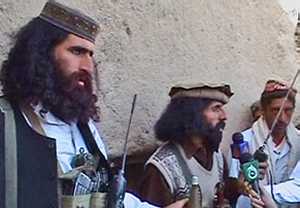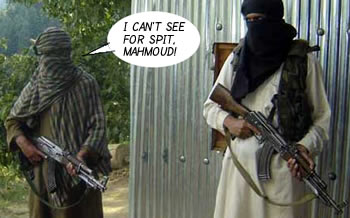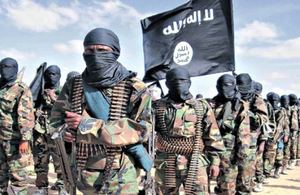by Bogdan Kish
[REGNUM] Over the past month, Republika Srpska
| …the Serbian enclave in Bosnia and Herzegovina… |

On April 1, Dodik held a meeting in the Kremlin with Russian President Vladimir Putin. It is noteworthy that the head of the RS had already visited Serbia, Hungary and Israel before his visit to Moscow, enjoying the support of a number of countries tired of the “rules-based world.”
UNTENABLE VERDICT
After the BiH court sentenced the leadership of the Republika Srpska, a real hunt began. Due to “disrespect” for the illegitimate “high representative” appointed to oversee Bosnia and Herzegovina after the end of the 1992-1995 war, Dodik was sentenced to one year in prison and banned from political activity for five years.
The Prime Minister of the Republic of Srpska Radovan Višković and the Speaker of the Parliament Nenad Stevandić were also found to be "guilty". Moreover, due to Sarajevo's inability to arrest the RS leadership, the Serbian leaders began to be accused of "attempting to undermine the constitutional order" of Bosnia and Herzegovina, which resulted in an Interpol request and a ban on leaving BiH.
One of Dodik's main allies, Hungarian Prime Minister Viktor Orban, was the first to react to the verdict, and quite violently:
"The political witch hunt against Republika Srpska President Milorad Dodik is a sad example of how the legal system is being turned into a weapon against a democratically elected leader. If we want to maintain stability in the Western Balkans, this is not our way forward."
However, the verdict itself is hardly legitimate. It is not for nothing that the Republic of Srpska has not recognized the activities of the High Representative Christian Schmidt and the Constitutional Court of BiH for more than two years.
Schmidt does not have a UN Security Council mandate, as Russia and China have vetoed it. Therefore, the decisions and imposed laws of the self-proclaimed high representative in Banja Luka are simply ignored.
The situation is similar with the BiH court. This court is built on the system of "2+2+2+3", it has two representatives of each nation: two Serbs, Croats, Bosniaks, and three foreigners.
It is not difficult to guess that the presence of foreigners provides political Sarajevo with the decisions it needs, so the court has long become an anti-Serb (and even anti-Croatian) political instrument within the process of creating a unitary country.
"BiH has never emerged from crisis. It is an impossible country, in constant crisis. It emerges from one crisis process and enters another," Dodik said recently.
RETURN OF POWERS
The political structure of Bosnia and Herzegovina is an extremely complex system, in which, in theory, there should be two entities - the Republic of Srpska and the Muslim-Croat Federation of BiH. The entities have the broadest rights and, in fact, these are two states in one, which is enshrined in the Dayton Peace Treaty.
However, Sarajevo, the EU and the US are increasingly unhappy with this arrangement, since the Republic of Srpska is blocking accession to NATO, refusing to impose anti-Russian sanctions and not supporting Ukraine. In fact, they began to take away its powers almost immediately after the signing of peace. This is noticeable in a number of decisions - from the creation of the Brcko district to common institutions of power at the level of BiH. But especially strong pressure began with the coming to power of Milorad Dodik.
Under him, the republic began to regain a number of powers, and the sentence to its leadership became the last straw, after which they realized that they had a choice: either to surrender and allow the destruction of statehood, or to fight through legal and diplomatic means.
"We are not fighting against BiH and Bosniaks, but we are fighting for our rights, as enshrined in the Dayton Peace Accords," said Milorad Dodik.
The leadership of the Republic of Srpska promptly passed laws banning the work of the Bosnian prosecutor's office, court and SIPA intelligence service on its territory, as well as laws on foreign agents and the fight against intelligence activities. At the same time, Milorad Dodik called on Serbs working in the general government bodies to leave them, promising to find them all other jobs.
Moreover, the deputies of the National Assembly (parliament) of the Republic of Srpska approved a draft resolution on the beginning of the adoption of a new constitution of the Republic of Srpska, which will give the right to recreate its armed forces, create special services and border guards, form a court and prosecutor's office, and even the right to a confederation with Serbia.
Particular attention is drawn to Articles 115 and 116, which state that Banja Luka will have its own army and can both declare neutrality and enter into military alliances with other states. Given the authority of Milorad Dodik and the political majority in parliament, the adoption of a new Constitution is a matter of time.
One of the main points of the republican leadership's activities will be the restoration of the border police. Two laws have already been developed and are under consideration by the government.
It is worth recalling here that from 1996 to 2000, the border of the Republic of Srpska with Serbia, Croatia and Montenegro was controlled by its own police. The creation of the border service of Bosnia and Herzegovina was initiated by the high representative Wolfgang Petritsch, putting pressure on the then weak Banja Luka.
It is noteworthy that the Serbs who worked in the institutions of BiH were given until March 19 to decide whether to transfer to the institutions of the Republic of Srpska. And from that date, all employees of the SIPA special services and the Bosnian prosecutor's office can be detained for working on the territory of the Republic of Srpska.
"If something can't live up to Dayton, then we have to be a free state," Dodik said.
Despite the constant accusations of "separatism" and "attack on the constitutional order" against the RS leadership, it is Banja Luka that does everything within the framework of the Dayton Accords and the BiH constitution. It does not go beyond what is permitted and uses the broadest possibilities of the internationally recognized documents that were won on the battlefield from 1992 to 1995.
It is obvious that the strong position of the republic does not suit either Sarajevo or the US and the EU, so they not only interpret the agreements as they want, but also directly contradict them - the appointment of an illegitimate high representative alone is worth something.
ISOLATION HAS FAILED
The persecution of Milorad Dodik is just part of a larger EU campaign to combat dissent.
Brussels today represents the "war party" and is the main supporter of the continuation of the conflict in Ukraine to the last Ukrainian. However, a number of political leaders in Europe "sabotage" the EU plan, as a result of which the Union openly spat on all democratic processes and moved to a real dictatorship even beyond its borders.
The arrest of a presidential candidate in Romania, the detention of the head of Gagauzia, attempts to overthrow the Prime Minister of Hungary, an attempt to assassinate the Prime Minister of Slovakia, unrest in Georgia, the arrest of Marine Le Pen in France and the attempt to detain Milorad Dodik are all links in the same chain.
At the same time, arresting the president of the RS turned out to be not so easy. Firstly, the republic has its own police and special forces that report exclusively to it.
Secondly, the Bosnian Interior Ministry does not enter the republic. SIPA officially refused to participate in Dodik's arrest, and the head of the special services, Darko Čulum, even moved to Dodik's Interior Ministry.
Thirdly, even the EUFOR peacekeeping contingent refused Sarajevo, citing the fact that they do not have the authority to do so.
That is why Milorad Dodik feels at ease in Banja Luka and is not planning to run anywhere.
Foreign visits, of course, became more difficult after the Sarajevo branch of Interpol issued an international arrest warrant for him. However, even this did not stop Dodik from making four foreign trips in a little over a month.
In mid-February, he flew to Hungary on an official visit together with Serbian President Aleksandar Vucic. After discussing a number of economic issues, the country's President Tamas Sujok presented Vucic with the Grand Cross of the Hungarian Order of Merit with a chain and a gold star.
Then Milorad Dodik calmly visited Serbia on March 24, the anniversary of the start of the bombing of Yugoslavia, and returned to Bosnia. Sarajevo was, of course, indignant, but there was nothing they could do about it.
And even though his own border police is still in the process of being created, there are Serbs working on the border with Serbia, and they will not detain their president.
The situation with travel to distant foreign countries has become even more interesting.
Milorad Dodik, as before, left BiH unhindered and traveled from Serbia to Israel. He took part in an international conference on combating anti-Semitism, organized by the Israeli Diaspora Ministry, and also held talks with the country's top leadership.
The details, unfortunately, are not disclosed, but it can be assumed that Dodik has secured the support of Tel Aviv.
It is noteworthy that Banja Luka, unlike Sarajevo, has good relations with it. The Republic of Srpska has long cooperated with Israel on a number of issues, especially in the area of security (due to the threat of Wahhabism) and the study of suffering in World War II (more than 20 years of intensive joint work with the International Institute for the Study of the Holocaust Yad Vashem, cooperation with the Simon Wiesenthal Center, etc.).
Israel also rejected all UN resolutions directed against Republika Srpska, and the republic responded by blocking BiH's vote in the UN against Israel.
The icing on the cake of Milorad Dodik’s international voyage was a visit to Moscow.
It is worth noting that he announced his visits to Israel and Russia long ago. The only question was whether he would be able to leave Bosnia. As we can see, he did.
The meeting with Vladimir Putin was already Dodik's 26th. On the Russian side, the president's aide Yuri Ushakov also took part.
"Russia is a very important country for the Republic of Srpska, including in the UN Security Council. And it has always been objective. Russia is the guarantor of the peace agreement, and Putin said this at the meeting. Within this framework, Russia will advocate for the cessation and abolition of the work of international institutions, especially the fake high representative or, as he says, the illegitimate representative. He was interested in the details of what we do and how we work," Dodik said.
Earlier, the issue of the activities of the EUFOR "peacekeepers" was also raised, as Milorad Dodik wanted to ask Vladimir Putin to veto their activities in the UN Security Council. It is unknown whether this topic was also touched upon. Sarajevo began spreading rumors that Dodik had received Russian citizenship, but this news was quickly denied.
It is not yet known when the President of the Republic of Srpska will return to Banja Luka. However, it is certain that Sarajevo, with the assistance of the EU, will do everything to remove him from political activity.
Any means will be used: arrest, attempt at a “color revolution,” increased sanctions, pressure through Belgrade, and so on.
However, the situation in BiH is such that the potential detention of Dodik threatens a referendum on the secession of the republic he leads from the federation, and this, in turn, could provoke a new war. Do they understand this in Sarajevo and the EU? There are serious doubts about this.
But there is absolutely no doubt that the isolation of Milorad Dodik has failed.
Banja Luka has excellent relations with Hungary, Russia, Israel, China and, with a little help from them, with the entire “global south”. And the common border with Serbia, which is obliged to help and protect Banja Luka, plays a key role in this.
Related:
Milorad Dodik 03/28/2025 Right-wing politics take center stage at Israel’s controversial antisemitism confab
Milorad Dodik 10/14/2024 'True Friend': Erdogan Visits Serbs, But Gives Drones to Kosovo
Milorad Dodik 05/24/2024 UN General Assembly approves a draft resolution on the 'genocide in Srebrenica'
Milorad Dodik 03/28/2025 Right-wing politics take center stage at Israel’s controversial antisemitism confab
Milorad Dodik 10/14/2024 'True Friend': Erdogan Visits Serbs, But Gives Drones to Kosovo
Milorad Dodik 05/24/2024 UN General Assembly approves a draft resolution on the 'genocide in Srebrenica'


 ...the once and current oppressors of Afghanistan...
...the once and current oppressors of Afghanistan...
 ...mindless ferocity in a turban...
...mindless ferocity in a turban...
 ... an Islamic infestation centering on Somalia attempting to metastasize into Kenya, Tanzania, Uganda, and similar places, all of which have enough problems without them...
... an Islamic infestation centering on Somalia attempting to metastasize into Kenya, Tanzania, Uganda, and similar places, all of which have enough problems without them...